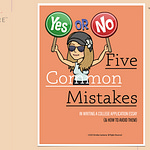Key Takeaways
Financial aid applications are down, leading to potential higher reliance on private/parent loans
Colleges may hold back institutional aid due to high demand, exacerbating financing challenges
Three groups of colleges: elite (won't discount), want-to-be elite (case-by-case aid), and open enrollment (may discount up to 50%)
Employees should explore education assistance benefits from employers to help pay down loans
Students can repay loans through budgeting, planning, and open communication with lenders
Topics
Financial Aid Landscape
Statistics show fewer FAFSA applications submitted so far
Potential for more students depositing without knowing full financing picture
Concern that colleges may restrict institutional aid due to high demand
Could lead to increased use of private/parent loans to cover costs
College Pricing Strategies
Elite colleges unlikely to offer more aid than already committed
Second tier colleges may negotiate aid on case-by-case basis
Open enrollment colleges may discount by up to 50% to fill seats
For elite colleges, families choosing between taking on significant debt or going elsewhere
Loan Repayment Advice
Federal loan programs offer more benefits than private loans
Income-driven repayment plans, forgiveness options for federal loans
Employees should explore tuition assistance, student loan repayment benefits
Create budget, plan, and communicate openly with lenders to manage repayment
[transcript]
Good morning. Good morning. Hey, how are you? I'm good. I'm good. I feel like it's been a long time since I've seen you. Yes. Where have you been? So I was looking at our I was looking at this document and I think that I forgot to cross one off because we started, didn't we last time start to talk about number nine and then we went down the whole FAFSA rabbit hole for this year?
Yeah. I think it's still important to reinforce it's a timely release then I think it's important to still let people know that applying for financial aid is important.
The latest statistics so far are showing that the numbers are still down of applications being submitted, which leads to the fact that a good percentage of people have probably deposited without knowing what their final financing strategy or resources are going to be from both schools and the government and their state that they live in. So there's a lot of helter-skelter and appeals are going to last all the way up until the first day of school in my mind.
I think so too. I also think there's probably a lot of double and possibly even triple depositing going on.
I don't doubt that. I have one student in my practice that yes, they were able to deposit in two locations because one's a state school and is guaranteed the money back if they don't come, which is a nice feature.
But yeah they're waiting for the ultimate. And although I'm very respectful of financial aid officers, I'm also leery that their institution leaderships may be telling them, hold back. They don't need to give as much of our own institution money because of this debacle that's going on and I'm very afraid that it's going to result in a higher use of private education loans and parent loans by families.
Yeah. And let's talk a little bit about that. What does that mean for a family?
So, I wrote an article and put it on my blog that there's three groups of schools that are out there, and it plays into what it means for the family for families as far as I'm concerned.
So group one is the elite highly selective. Everybody wants to apply. Some are referring to them as the buyers and sellers, I refer to them as the "supply/demand" schools. They're not going to offer any more money than they've already offered whether they're 100 percent need or need blind or whatever the genre that they're using to describe their process. They're not going to offer any more money because there's a litany of people who are waiting to buy box seats, Celtics front row. So if you're not able to pay based on what you have for money, the net cost that's been presented, mine is go to plan B.
The second group of those that are they want to be elite, highly selective, small Ivies. They have stated through articles I've read and whatnot, that we'll talk on a case by case basis, another group to consider going to plan B.
And then there's group three, which are, like hotels and airlines and restaurants, they're trying to fill their seats, and they may discount up to 50%. What it means is that if I'm in the first group and I don't have the resources, but I don't want to tell little Johnny to Stevie that they can't go to school, I'm going to take out a private loan. And that can be anywhere from $10,000 to $40,000 a year.
A year times four on top of the student gets done in four exactly on top of their federal loans.
Again, if I'm studying social science, if I'm studying history, if I want to be a librarian, if I want to work in, even nursing, which takes 10 years to make $100,000 or more(I have a 40 year old daughter that's in that field.) Okay. Do you want to come up with that kind of debt for the sake of going to one of those schools for the sake of the prestige?
And all that we've talked about before and what I banter about. Basically, at best, you're paying for the network and the connections. Yeah. Because At worst, you're paying for a really expensive sweatshirt. Yeah, thank you. Yeah. So from a consumer standpoint, would you buy a house using the same mentality?
Would you buy a car? No, we've talked about that before. We've got to look at it, but we're late in the game now. And if it's the only school I got accepted with because I got waitlisted or denied at others, cause I didn't do the right list. I'm sorry, folks. If I didn't do the right list there's a problem there because the schools know that when they looked at your numbers, you have the ability.
You may not have the immediate resources. They teased you with a little bit of a scholarship or a need based aid, and you're paying 80 percent of the fare. Group 2 is the same way. Maybe the balance of the loan is going to be a little lower. And Group 3, Group 3 are great schools. I just saw a list of kids that a student applied.
And they're all unknowns. They're highly attractive. They'll be open in four or five years. They're not financially insolvent. And, they're rewarding money because they're looking for students and the net cost may be different, but no, your sweatshirt will be different than your cousin's.
Yeah. And, something about that group three to think about is, when you're thinking about doing business with somebody, Do you want to do business with somebody who's going to make it really difficult for you to do business with them? Or do you want to, which school do you want to put your trust in?
Do you want to go to the school that wants you? It's not that they don't care, but they have their business model and their business model is more payers than givers, then the others. And if I'm an administrator of a school and I can raise my bar and I can raise my brand to catch up with them. Yeah, I'm going to try to do that. But the downside of some of that may be I'm going to cut some of my academic programs. And we're already seeing that going on.
Which is very. appropriate from a business perspective. If I have a laundry list of majors and I'm undersubscribed significantly in certain majors that from a business perspective, I need to cut that. Yeah. And I think in some ways that might be the silver lining to some of this. Sure. Sure. More schools will become specialists.
So to answer your question, it may where we choose right now because of the lack of information about our overall financing and come on, let's be honest, this federal financial aid form. To caption it “federal aid” is a misnomer. There's only three programs I've talked about it for, if you're into nursing or teaching, but you're only looking for a Pell grant or a student loan and everybody gets a student loan, work study. Most kids shouldn't work in that first semester of the year until they get their legs and they feel comfortable at school. I don't know why colleges can't take 10 years worth of historic information, even five years of historic information based on the GPA, the ranges they want, the type of students they want, and the financial profiles, and be able to make offers without having a financial aid form like the FAFSA.
Maybe a modified CSS profile, We'll work if we can get it for low cost, instead of being 9 or 16 a school, let's make it a little bit smaller in cost. I could see this debacle potentially eliminating this form or at least putting it into a new genre. But for families going into the process, sophomores and juniors that I'm working with to do some of this prep work, number one, they got to figure out what their budget is, and number two, when you're touring as college, you've Ask them, are you going to be open in five years?
And what academic programs are slated to be shut down? And it's not negative that they're going to shut it down. It's just, I may not be able to look at this school anymore because they're not going to offer art history. Or, Language, so find another school and if I'm the other school man, I want to see you front and center so I can talk to you about coming.
So this financial aid problem is going to play out through the summer. And we're going to have a lot of financial aid people saying this is enough I'm leaving. I'm done with this. It's already happening, positions are opening. If you want to go to work in a position in an industry where you can care about people, you can help people, and you have an interest in finance and customer service, go to work in financial aid.
There's numerous jobs available. So sorry to be the Wednesday morning grim reaper. It's helpful information. People need it.
https://getcollegegoing.com/college-decisions-are-pending-action-required/











